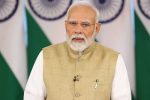Highlights: BJP’s Strategy for 2019, Dalit-Bahujans and Fraternity, Nehru and the Rise of Modi, Women and the Future of Democracy, Social Ethics of Violence and the Maoist Movement in India Award Wapsi, Dmonetization, the crisis in JNU and Higher Education, electoral outcomes, including in the states of UP, Bihar, Delhi etc.
BOOK RELEASE, 20TH NOVEMBER 3.30 PM SSS-I COMM ROOM, JNU, New Delhi.
Chair: Prof. Manoranjan Mohanty, Professor, CSD. Release by: Prof.Prabhat Patnaik, Professor, Emeritus, JNU. Panelists: Dr.Manoj Jha, MP, Rajya Sabha, Ziya Us Salam, Frontline, Vikas Pathak, The Hindu.
The latest literature on “India After Modi: Populism and the Right” by Prof., Ajay Gudavarthy, attempts has been made to understand the ‘Populism’ in depth and the ‘politics of right’ in a well documented and highly researched manners. The variety of topics offers a modest attempt to cycle several issues. The Author, Dr/Prof., Ajay Gudavarthy is associate professor, Centre for Political Studies, Jawaharlal Nehru University. Gudavarthy, turns relevantly on ‘Indian Democracy’ after Narendra Modi took over as the Prime Minister in 2014.
Read Also, Prof Ajay Gudavarthy’s Book released at JNU, Here is the introductory highlights
The opening part of Gudavarthy’s book deals with, Populism and Authoritarianism, The Part two deals with State (S) of democracy, Part three deals with Dalit-Bahujan Politics, and the final part of the book deals with “Future of Politics”. Significantly, The variety of topics offers a modest attempt to cycle several issues such as Award Wapsi, Dmonetization, the crisis in JNU and Higher Education, electoral outcomes, women’s participation, new urban spaces, and the role of youth, including in the states of UP, Bihar, Delhi etc..
Importentally, the second part of the literature are quite relevant with regard to BJP’s strategy for 2019 General election. The book “India After Modi: Populism and the Right” relies on factulity and well documented analysis of latest research drawn from intellectual traditions and the several field studies, it also includes, philosophical and ethical assumptions to understand the several issues such as Social Ethics of Violence and the Maoist Movement in India.
The author recently argued that, Yet, Modi continues to be silent, from Rafale deal, to #MeToo to the recent crisis in the CBI, The Wire.
The Author also writes that, “The remergence of right-wing politics in India is built on the fragmented nature of the struggles waged by the oppressed who constitute the vast majority of the population: ‘lower’ castes, adivasis, working classes and peasants, women, religious minorities, etc. Countering right-wing political imagination would mean a dismantling of caste, class, gender and religion-based oppressions. This cannot happen without forging a commonality among the oppressed which is at once non-patronising as well as self-critical”.
Reviews Of the Book
Meanwhile, “India after Modi does not merely condemn. It takes the job of a critique seriously by pointing out the many ways in which the BJP has offered numerous marginal as well as once-powerful but recently disempowered groups a fraternal space of recognition as Hindus. In a climate of generalized anxiety and rampant hatred, such people have been emboldened to seek vigilante justice by attacking Muslims as the safest enemy. Gudavarthy’s book is complex and deeply disturbing.” – Partha Chatterjee, Columbia University, New York.
“This timely book diligently captures the qualitative kink in the history of postcolonial India with the help of various markers…a heady mix of European fascism and Indian Brahmanism…A must-read for all those who wish to understand the complex reality of contemporary India.” – Anand Teltumbde, Goa Institute of Management, Goa.
Millions of wishes to prof., Ajay Gudavarthy for his book release today, Trilok Singh (YD).
“This book, which eschews mere moral condemnation of the Right in India to analyse its current ascendancy, and the corresponding stasis of the Left and Liberal forces, is a bold and imaginative work by a political theorist. No matter how one reacts to the author’s arguments, they demand one’s serious engagement.” – Prabhat Patnaik, Emeritus Professor, Jawaharlal Nehru University, New Delhi.
“In this timely and important book, Ajay Gudavarthy offers a compelling and critical commentary on Indian politics. The writing is engaging and jargon-free, and the analysis acute. Whilst titled India after Modi the book does not spare any political party. Rather, it offers sharp insights into the current state of Indian politics, how we got here, and where we might be headed. A must-read for all those wishing to understand the complex politics of the “world’s largest democracy”.” – Hugo Gorringe, University of Edinburgh, Edinburgh.
Some Inputs followed by Prof., Ajay Gudavarthy and Bloomsbury, India.
Note: For Corrections, info@youthdarpan.com.
























